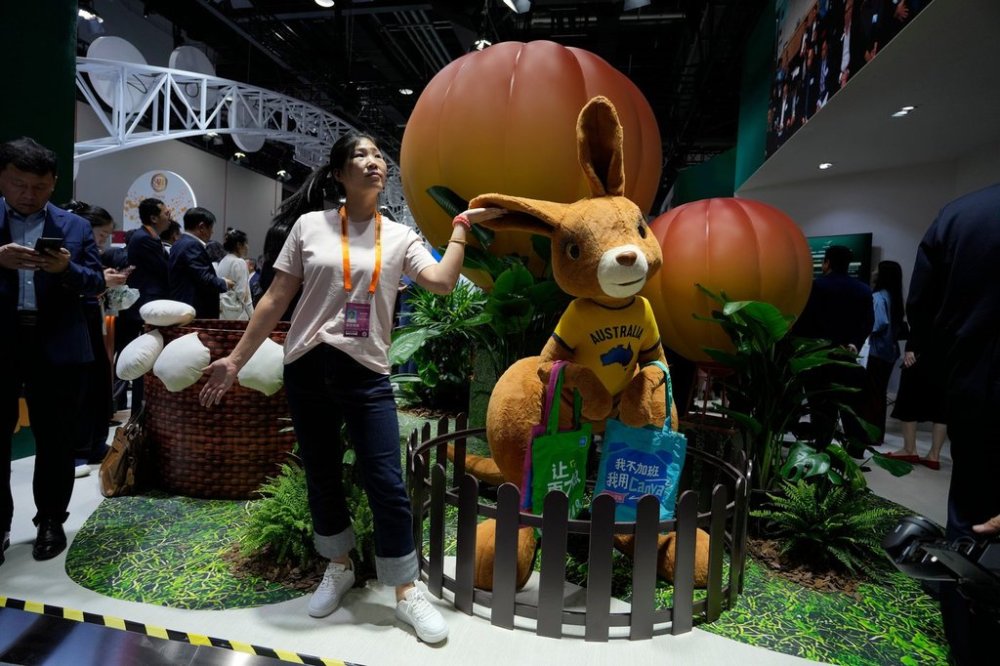Australian spy chief criticizes China for IP theft and political meddling
Advertisement
Read this article for free:
or
Already have an account? Log in here »
To continue reading, please subscribe:
Monthly Digital Subscription
$0 for the first 4 weeks*
- Enjoy unlimited reading on winnipegfreepress.com
- Read the E-Edition, our digital replica newspaper
- Access News Break, our award-winning app
- Play interactive puzzles
*No charge for 4 weeks then price increases to the regular rate of $19.95 plus GST every four weeks. Offer available to new and qualified returning subscribers only. Cancel any time.
Monthly Digital Subscription
$4.99/week*
- Enjoy unlimited reading on winnipegfreepress.com
- Read the E-Edition, our digital replica newspaper
- Access News Break, our award-winning app
- Play interactive puzzles
*Billed as $19.95 plus GST every four weeks. Cancel any time.
To continue reading, please subscribe:
Add Free Press access to your Brandon Sun subscription for only an additional
$1 for the first 4 weeks*
*Your next subscription payment will increase by $1.00 and you will be charged $16.99 plus GST for four weeks. After four weeks, your payment will increase to $23.99 plus GST every four weeks.
Read unlimited articles for free today:
or
Already have an account? Log in here »
MELBOURNE, Australia (AP) — An Australian spy chief on Tuesday accused Chinese security services of widespread intellectual property theft and political meddling, while he said they failed to understand how their Western counterparts operate.
Mike Burgess, director-general of the Australian Security Intelligence Organization, better known as ASIO, said he would continue to call out China for harming Australian interests.
“We all spy on each other, but we don’t conduct wholesale intellectual property theft. We don’t actually interfere with political systems and we don’t undertake high-harm activity,” Burgess told the Lowy Institute international policy think tank in Sydney.

Burgess said in denying his accusations, China displayed an ignorance of ASIO’s role in Australia.
“Every time I’ve done that (called China out), there’s an army of Chinese government officials that go around complaining to almost everyone in this country across the system — public and private — but not to me.” Burgess said.
“If they were smart as they should be — and they are smart — they would understand a Western liberal democracy and the role and the statutory standing of the security service. We work for the government of the day but our security assessments and our security action are independent,” he said.
“They clearly don’t understand the system, because if they want to complain about ASIO doing its job and explaining the threats to the people we’re protecting, including calling out China when we need to, it won’t stop my resolve, it won’t stop my officers from doing the job and we’ll continue to call them out when I need to,” he added.
Relations between China and Australia plumbed new depths in 2020 over issues including Beijing’s anger over new laws banning covert foreign interference in Australian politics.
Diplomatic and trade ties have improved since Australia’s current government was first elected in 2022. But security relations remain fraught as Australia joined the United States in efforts to counter China’s rising influence in the Indo-Pacific region, which both see as a threat.
Burgess said he had a “strong relationship” with FBI Director Kash Patel.
“When it comes to protecting Australians, the Americans are great mates and they help us every day and we do our fair share of helping them as well. That’s the way it should be. I’ve seen no change to things since President (Donald) Trump was reelected,” Burgess added.
In 2023, Burgess said in his annual threat assessment that Australia faced an unprecedented threat of espionage and foreign interference with more Australians being targeted by agents than ever before.

